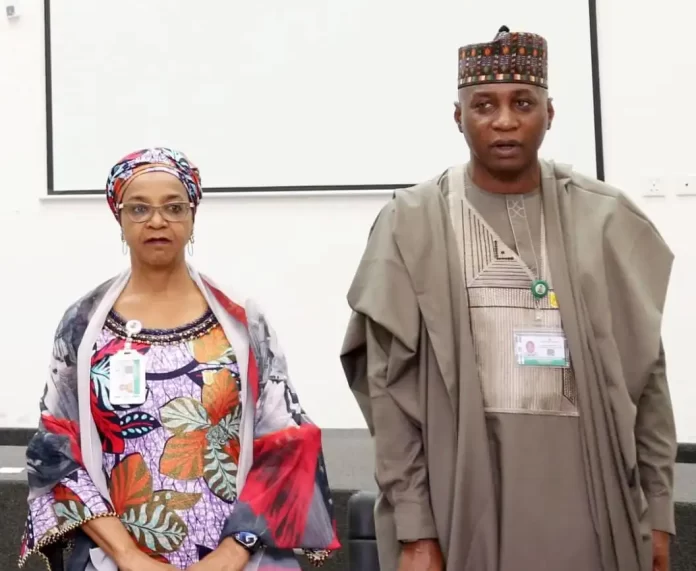By Rahman Raheem, Managing Editor, PRNigeria
We have read, with keen interest and deep concern, the rejoinder issued by Professor Sola Adeyanju, Head of Public Affairs at the National Institute for Policy and Strategic Studies (NIPSS), in response to widespread media reports on the unjust suspension of Mr. Yushau A. Shuaib—renowned communication strategist, founder of PRNigeria, and a participant of the Senior Executive Course (SEC) 47.
This statement is not a defense of my boss. Rather, it is a necessary and informed response, especially as PRNigeria’s digital infrastructure—specifically its editorial email—was unlawfully accessed by NIPSS. More importantly, the news article that prompted the first query against Mr. Shuaib, titled “NIPSS Goes Digital”, was written under my editorial authority. I, not Mr. Shuaib, bear full editorial responsibility, and I am not affiliated with NIPSS.
Yet, in its rejoinder, NIPSS conspicuously ignores the gravest issue: the unauthorised interception of our official editorial email—containing confidential correspondence, story leads, and sensitive information. This intrusion amounts to a violation of the Cybercrime (Prohibition, Prevention, etc.) Act, 2015, which criminalises unlawful access to digital communication.
Following the incident, PRNigeria’s broader infrastructure—including those of Economic Confidential and Tech Digest—has suffered repeated attempted breaches. We are currently working with cybersecurity experts and legal counsel to investigate the scope and timeline of these violations, and we will pursue legal redress where necessary.
NIPSS must answer a direct question: Did the Institute, or anyone acting on its instruction, access PRNigeria’s editorial email without legal authorisation? If so, under what justification and legal framework? In a democratic society, such questions cannot be brushed aside as mere internal disciplinary affairs.
It is also baffling that Mr. Shuaib was punished for an editorial decision in a newsroom he formally handed over before commencing the NIPSS course. A copy of that handover letter was officially submitted to NIPSS management. Punishing a participant for content he neither wrote nor cleared—after he had relinquished control—raises serious questions about motive and fairness.
Moreover, Mr. Shuaib’s second article, “Understanding the ‘Blue’ in the Blue Economy”, did not mention NIPSS at all. It was a thought leadership piece, rooted in public knowledge, that merely aligned with national policy themes under President Tinubu. That this was twisted into a disciplinary offence speaks volumes.
Let us be clear: Mr. Shuaib is not an agitator. His record in promoting peaceful coexistence, strategic communication, and public accountability spans decades. His awards from both national and international bodies attest to this. To suggest, as the rejoinder does, that he has undermined NIPR or used his platform for blackmail is not only false but defamatory.
In fact, the lack of procedural transparency in NIPSS’s actions is staggering. The official suspension letter failed to mention any duration, yet the rejoinder now retroactively imposes a six-week term. What kind of disciplinary process withholds such vital information from the subject while revealing it publicly afterward?
Mr. Shuaib paid ₦18.2 million for a programme that includes study tours and intellectual engagement. Yet, he was suspended, excluded from study tours, barred from internal communication channels, and effectively ostracised—without a formal hearing or final verdict.
Let us ask: What sort of think tank treats its intellectuals like insubordinate schoolboys? What world-class strategic institute disciplines participants for exercising editorial independence or engaging in national discourse? At Harvard’s Kennedy School, Chatham House in the UK, or Singapore’s Civil Service College, such views are celebrated, not silenced.
NIPSS’s treatment of Mr. Shuaib undermines everything the Institute claims to stand for: critical thinking, policy innovation, and ethical leadership. Instead, it sends a chilling message—conform or be punished.
This issue goes beyond the victimisation of one individual; it speaks to the kind of leadership and governance culture we are normalising. In the petition to President Bola Ahmed Tinubu, two key personalities were referenced—Barrister Nima Salman Mann, Acting Director of Studies, and Rear Admiral A.A. Mustapha, a Directing Staff. The question remains: were these officials acting under the directive of the Director General of NIPSS, or on their own accord? Clarifying this would help identify who should be held accountable for this deeply embarrassing episode—not just for Mr. Shuaib, the victim but for the Institute itself.
Even more troubling is the NIPSS spokesperson’s attempt to rationalise why a positive media report on the government’s economic reforms warranted disciplinary action under vague and non-existent regulations. If an institution entrusted with shaping national policy cannot accommodate complimentary narratives about the administration it serves, how will it respond to constructive dissent or uphold professional independence?
Must everything be militarised? Are participants to be treated as schoolchildren—subjected to bullying and suppression—rather than as experienced professionals deserving of respect and intellectual freedom?
Therefore, we respectfully call on NIPSS to address and clarify the issue of digital surveillance and unauthorised email access; to engage PRNigeria through appropriate editorial channels rather than targeting its founder; to reaffirm its commitment to transparency, intellectual freedom, and justice; and to acknowledge and rectify the procedural irregularities that marred its disciplinary process.
In moments like this, institutions are judged not by the power they wield but by the values they uphold. NIPSS has a choice—to retreat into arrogance or to lead with accountability.
The world is watching. So are we.
Rahman Raheem
Managing Editor, PRNigeria






